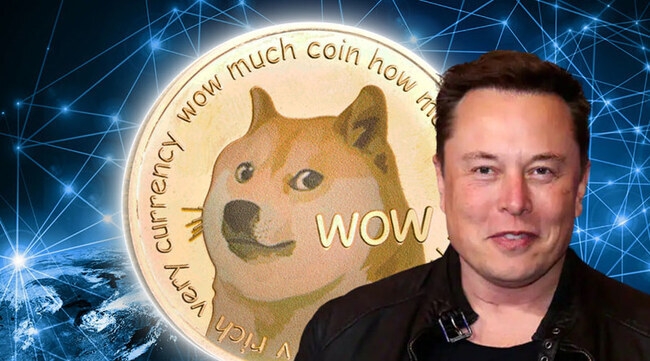Highlights:
- The Dogecoin lawsuit against Elon Musk has ended after investors dropped their appeal.
- The $258 billion lawsuit accused Musk of manipulating Dogecoin’s price via tweets and public appearances.
- Both parties agreed to drop all motions and sanctions, awaiting final approval from U.S. District Judge Alvin Hellerstein.
The high-profile Dogecoin lawsuit against Elon Musk ended after investors withdrew their appeal. U.S. District Judge Alvin Hellerstein will have to approve the Thursday filing in Manhattan federal court that stipulated to dismiss the appeal.
🚨ELON CLEARED IN DOGECOIN LAWSUIT DISMISSAL
A lawsuit accusing Elon of manipulating Dogecoin prices has come to an end, with investors withdrawing their appeal after a judge dismissed the case in August.
The suit, which once sought $258 billion, alleged Elon’s tweets and… pic.twitter.com/rAeQPXItkQ
— Mario Nawfal (@MarioNawfal) November 15, 2024
Both Parties Move to Dismiss Claims in the Lawsuit
Musk and Tesla were accused in the lawsuit of manipulating Dogecoin’s prices through social media posts, television appearances and other public statements. Investors claimed that Musk’s actions artificially inflated the cryptocurrency’s value allowing him to profit at their expense. They referred to his frequent tweeting about Dogecoin, as well as his appearance on “Saturday Night Live” where he referred to the cryptocurrency as a “hustle.”
Judge Hellerstein ruled on August 29 that Musks’s statements were too vague to constitute securities fraud and dismissed the case. He stated that reasonable investors would not rely on such statements to make investment decisions. Despite the dismissal, the investors initially filed an appeal and sought sanctions against Musk’s legal team, alleging interference in the appeal process.
The investors withdrew their appeal and motion for sanctions this week. Musk and Tesla earlier withdrew their motion to sanction the investors’ lawyers, whom they accused of pursuing a frivolous lawsuit with constantly changing legal theories. Both parties agreed to dismiss their respective motions, effectively concluding the two-year legal warfare.
Filed originally in 2022, the lawsuit was amended multiple times over two years. Investors accuse Musk and Tesla of running a “crypto pyramid scheme” claiming they promoted Dogecoin to inflate the price and then allowed it to plummet. They sought $258 billion in damages, claiming significant financial losses due to Musk’s alleged manipulation.
Court Rules Musk’s Statements Not Securities Fraud
In his ruling, Judge Hellerstein emphasized that Musk’s statements about Dogecoin were puffery and not actionable misrepresentations. He noted that comments like Dogecoin becoming the ‘future currency of Earth’ or plans to “put a literal Dogecoin on the moon” were not specific enough to be considered fraudulent. Consequently, the court found no grounds for the lawsuit fraud in securities.
The judge also dismissed similar claims of insider trading and market manipulation due to a lack of clear evidence. The plaintiffs had not shown that Musk intended to deceive investors or that he had a duty to disclose any material information. Without such evidence these claims could not proceed.
The dismissal of the appeal and withdrawal highlights the challenges of holding public figures legally responsible for statements about volatile assets like cryptocurrencies. The Dogecoin lawsuit against Elon Musk underscores the challenges in regulating the influence of famous individuals on digital asset markets.
Despite the lawsuit’s conclusion, Elon Musk remains a prominent figure in technology and business. Recently, President-elect Donald Trump appointed Musk and biotechnology entrepreneur Vivek Ramaswamy to lead the new Department of Government Efficiency. The initiative aims to drive structural reform in government operations.





